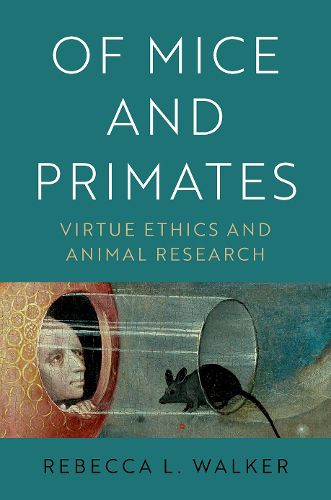Readings Newsletter
Become a Readings Member to make your shopping experience even easier.
Sign in or sign up for free!
You’re not far away from qualifying for FREE standard shipping within Australia
You’ve qualified for FREE standard shipping within Australia
The cart is loading…






The ethics of research on animals has historically been viewed through the lens of cost vs benefit, and whether animals have rights. Is the suffering that might be experienced by animals-and the violation of their rights, if they are seen to have any-worth the gain in scientific knowledge? Many experiments that have caused great animal suffering were ethically justified in this way. Rebecca Walker here argues against this paradigm, and advocates instead for a virtue ethics approach. She argues that what is missing from the traditional approach to animal research are issues of character, context, and relationships. What is problematic in much research on animals is less a violation of rights than a lack of care for the vulnerable; and that most philosophical approaches to animal research ignore the actual practice of that research. Different ethical questions thus arise when viewed through this lens, such as: does a researcher who develops relationships with her animal subjects owe them a greater duty of care? What is the moral significance of the psychological effects on the researcher of doing that research? Can, or should, a rhesus monkey, for example, used for research live a good life when it is housed in a research facility?
Of Mice and Primates addresses these and other questions by reorienting our moral concern about animal research, and offers a moral theory focused on what actually happens in research settings.
$9.00 standard shipping within Australia
FREE standard shipping within Australia for orders over $100.00
Express & International shipping calculated at checkout
The ethics of research on animals has historically been viewed through the lens of cost vs benefit, and whether animals have rights. Is the suffering that might be experienced by animals-and the violation of their rights, if they are seen to have any-worth the gain in scientific knowledge? Many experiments that have caused great animal suffering were ethically justified in this way. Rebecca Walker here argues against this paradigm, and advocates instead for a virtue ethics approach. She argues that what is missing from the traditional approach to animal research are issues of character, context, and relationships. What is problematic in much research on animals is less a violation of rights than a lack of care for the vulnerable; and that most philosophical approaches to animal research ignore the actual practice of that research. Different ethical questions thus arise when viewed through this lens, such as: does a researcher who develops relationships with her animal subjects owe them a greater duty of care? What is the moral significance of the psychological effects on the researcher of doing that research? Can, or should, a rhesus monkey, for example, used for research live a good life when it is housed in a research facility?
Of Mice and Primates addresses these and other questions by reorienting our moral concern about animal research, and offers a moral theory focused on what actually happens in research settings.